'The minute I tell couples to use condoms or suggest permanent birth control, they ignore it or just change the topic.'
India has surpassed China to become the world's most populous nation with 1.4286 billion people, shows the latest United Nations data, even as UN projections estimate that the country's population is expected to grow for the next three decades after which it will begin declining.
Bihar, one of India's least developed states, had the highest fertility rate of 2.98.
State health officials estimate in Bihar's Kishanganj district, the fertility rate is 4.8 or 4.9.
Successive state governments have been aware of the population growth problem, particularly in Kishanganj, and have mounted programmes to curb it.
Besides the free distribution of condoms and birth control pills, the state pays Rs 3,000 to women who get sterilised and Rs 4,000 to men, and 500 rupees per surgery to the health workers who perform them.
Yet the results have been poor.
India's fertility rate fell to 2.0 in 2019-2021, but Bihar has the highest fertility rate with some families expecting women to have at least five children, preferably sons.
"I talk to women while they are experiencing labour pain and nudge them to undergo sterilisation immediately after delivery," said Parvati Rajak, a medical officer in one of Kishanganj's seven government health centres. "But the final choice is always made by the family."
"The state government's focus is to ensure that policy interventions percolate to the ground, its mechanisms such as free sterilisation, temporary birth control instruments are used actively," said Sanjay Kumar Pansari, director in the Bihar government's directorate of economics and statistics.

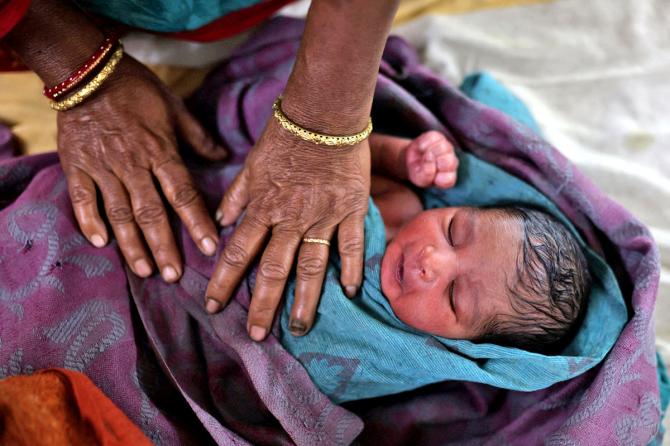
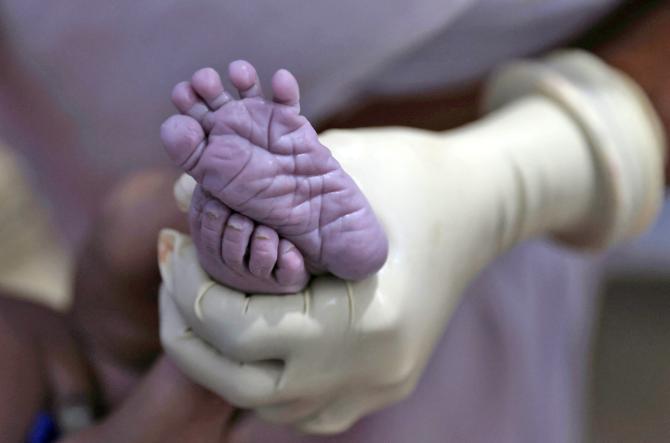
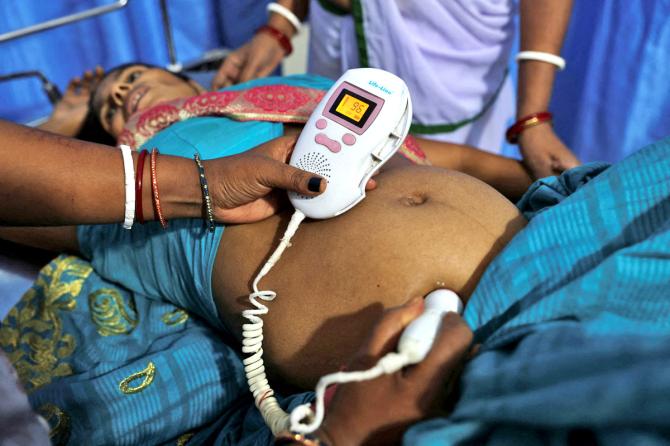
Just minutes after giving birth to her fifth child, Zamerun, who is married to mason Mohammad Wasim, 40, said she would try to secure permission from her husband to undergo sterilisation before leaving for home, who later agreed to the procedure.
"My body cannot take this pressure of having babies anymore," she told Reuters. "I have been lucky to survive each time."
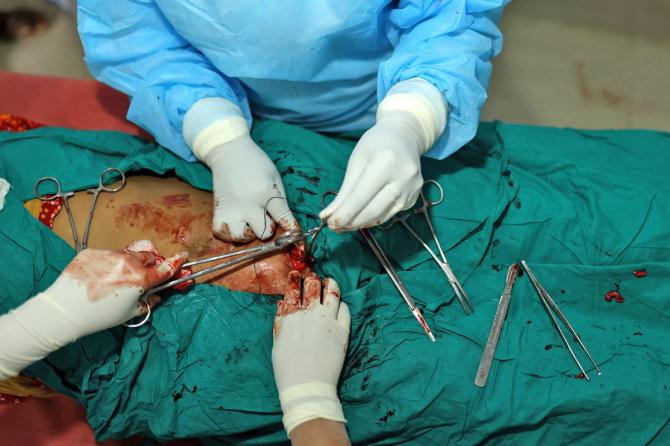
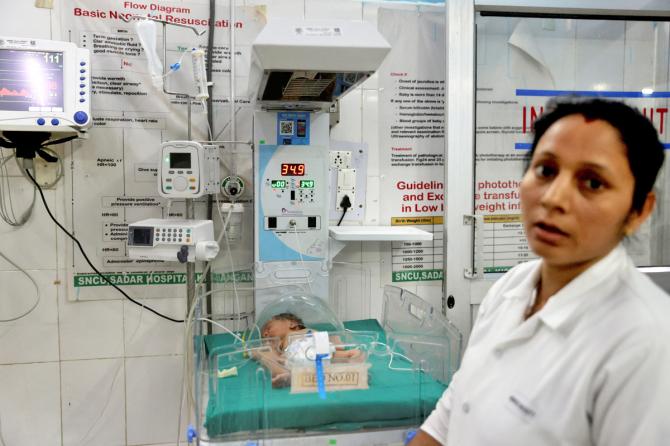
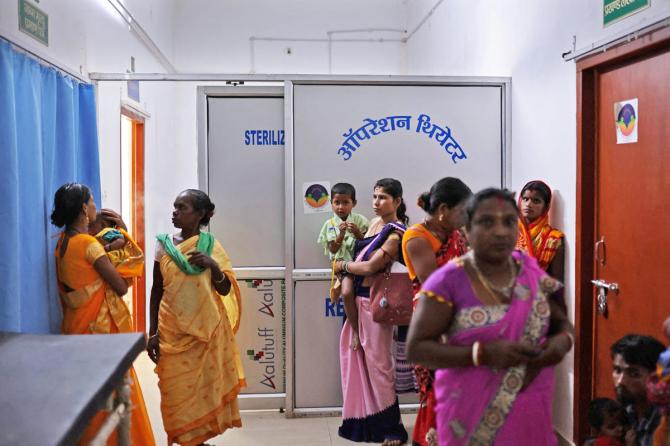
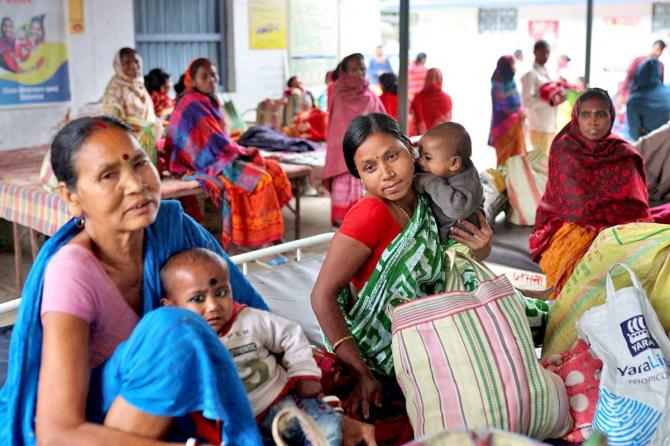
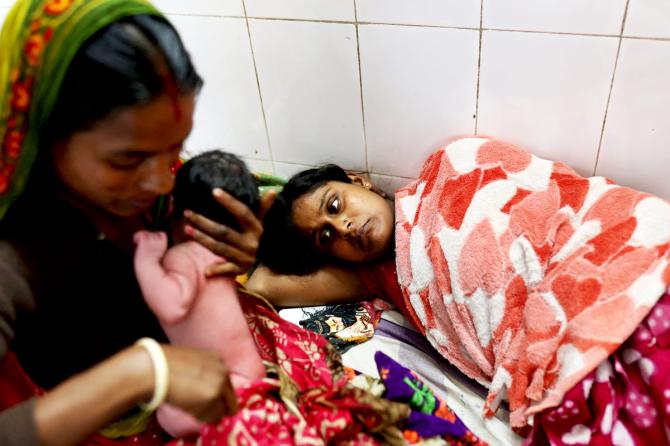
"For the fourth time I have had a girl...now I will wait for a few years before I try to have a boy," said Chandani Devi, 36, as she tried to fight back tears in a hospital ward after her delivery.
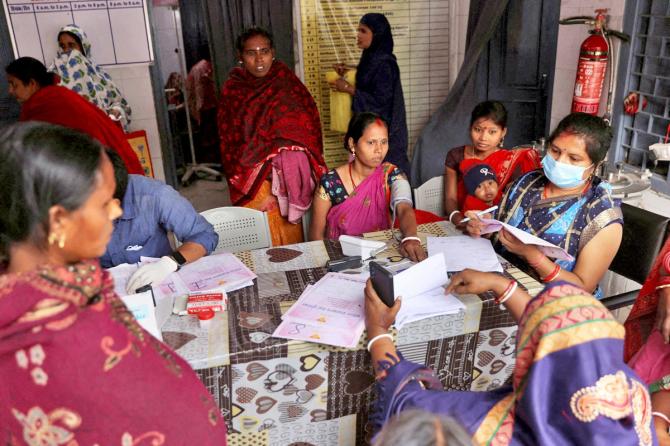
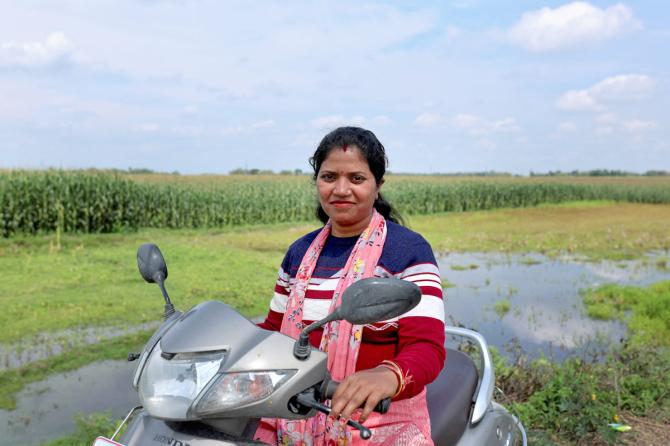
Kumari, a government health worker, offers condoms and birth control pills for free in the Kishanganj district and talks to the couples about birth control and the benefits of having just two children in Kishanganj, which has the highest fertility rate of any district in India, soon to be the world's most populous nation.
"The minute I tell couples to use condoms or suggest permanent birth control, they ignore it or just change the topic," Kumari told Reuters.
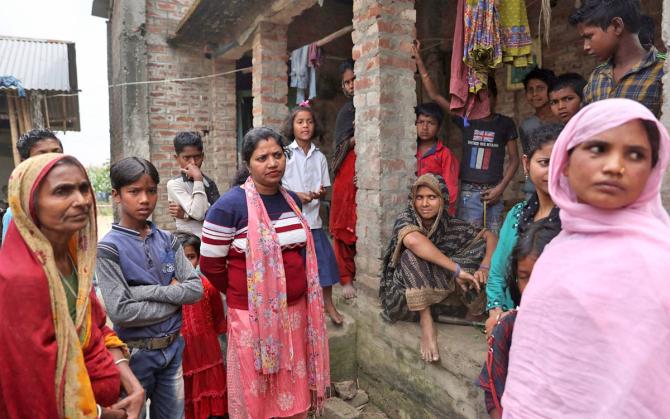
Photographs curated by Manisha Kotian/Rediff.com
Feature Presentation: Rajesh Alva/Rediff.com


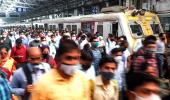








 © 2025
© 2025